Academics
- 홈
- Academics
- Colleges
-
College of the Social Science
- College of Buddhist Studies
- College of Humanities
- College of Natural Science
- College of Law
- College of the Social Science
- College of Police and Criminal Justice
- Dongguk Business School
- College of Life Science and Biotechnology
- College of Engineering
- College of Advanced Convergence Engineering
- College of Education
- College of the Arts
- College of the Pharmacy
- College of Future Convergence
- Dharma College
- School of Interdisciplinary Studies
College of the Social Science
College of the Social Science

- Deans Welcome
- Department of Political Science and Diplomacy
- Department of Public Administration
- Department of North Korean Studies
- Department of Economics
- Department of International Trade
- Department of Sociology
- Department of Media Communication
- Department of Food Industrial Management
- Department of Advertising
- Department of Social Welfare
Dean's Welcome
Welcome to the College of Social Sciences.
This is a place for people who love pioneering ideas in dealing with every political, social and economic issue that contemporary society faces. Our ten academic departments and seven research institutes will provide you with interdisciplinary opportunities and the vibrant environment to become leaders in government, politics, research institutions, and non-prof it social agencies.
Specifically the ten academic departments and seven research institutes address a wide range of themes of public policy, international affairs, political conflict, and economic issues that the 21st century faces. The educational experience in the College of Social Sciences will produce the best of tomorrow's leaders who can generate innovative solutions and organize productive international resolutions for critical issues in politics, business, economics, crime and global relations.
By emphasizing the quality of future leaders, we are committed to ethical values such as tolerance, mutual respect and collegiality. The accomplishment of our vision will inspire students to be global leaders who are creative, resourceful and intellectual in the social, political, behavioral and economic sciences.
Nine out of ten departments have both master and doctoral programs that can greatly enhance the opportunity to be hired by both the governmental and on-government sectors.
The College of Social Sciences offers a variety of Masters‘ programs and Ph.D. courses to a diverse student body and in the following areas: Political Science & Diplomacy, Public Administration, North Korea Studies, Economics, International Trade, Sociology, Journal ism & Mass Communication, Food Industrial Management, Advertising and Social Welfare.
- Office
College of the Social Science
- Tel
+82-2-2260-3104-5
Department of Political Science and Diplomacy
Introduction
The Major of Political Science and Diplomacy focuses on political phenomena and diplomatic activities that an individual, a group, or a nation realizes in local and international societies. In researching political issues, the core of argument is related to quest ions regarding how harmoniously freedom, equality, rights, and duties are given to subjects of political activities in their common lives. In researching and analyzing diplomatic activities, not only a nat ion‘s own safety and prosperity, but also the peace of international society will be discussed.
Curriculum
Comparative Politics / Methodology of Political Science / Introduction to Korean Politics / Introduction to International Relations / Introduction to Political Thoughts / Politics of Korea /Theory of Representative Government / Contemporary Political Thoughts Western Political Thoughts / Asian Politics Thoughts / Korean Foreign Policy / International Organization / International Political Economy / Theory of Foreign Pol icy / Theory of Political Process / Elect ion and Political Parties /American Politics /Theory of Government System / International Politics of Eastern Asia I Korea, Japan and China/ Issues of Contemporary Korean Politics / Comparative Democracy / Game Theory G Politics / Korean Political Thoughts
Professors
| Name | Picture | Major | Final degree school | |
|---|---|---|---|---|
| Myeong-Ho Park |  |
Comparative Politics | Michigan State University | mpark@dongguk.edu |
| Jae-Chul Lee |  |
Comparative Politics | Missouri State University, Columbia | jclee@dongguk.edu |
| Jun-Seok Kim |  |
Political Theory | New York State University, Stony Brook | jspicture7@yahoo.co.kr |
| Woo Jung Moo |  |
International Relations | University of Kentucky | wjm77@dongguk.edu |
| Kenneth Wilson |  |
Comparative Politics | University of Oxford | kenneth@dongguk,edu |
- Office
Department of Political Science and Diplomacy Studies
- Tel
+82-2-2260-8717
Department of Public Administration
Introduction
Public administration is the study of administration and policies, having its purpose in harmonizing democracy, efficiency, economy, rationality, effectiveness and social equity, and in improving the people's welfare and the accomplishment of public works. The purpose of the Major is to cultivate public individuals of ability, who understand the basic knowledge and theories of administration at large, use research methods to clarify administrative phenomena and have a clear understanding of social phenomena and rational thinking capabilities. Additionally, it aims to discover how government can realize efficient administration to provide a good quality of service to the people and also how the government can realize democracy in the age of local self-government.
Curricula
Introduction to Policy Science / Introduction to the Public Administration / Public Planning / Personnel Administration / Pol icy Format ion/Research Methods for Public Administration / Organization and Management / Public Enterprise / Urban Administration/Social Welfare Administration/Financial Administration/Studies on the Financial Policy / Policy Analysis / Policy Case Study / Policy Evaluation / Local Administration / Public Administration in Korea / Administrative Reform / Quantitative Aids to Administration / Public Administration Theorv / Administrative Information System / Public Service / Local Public Finance / Market, Government, and Network / Public Administration and Governance
Professors
| Name | Picture | Major | Final degree school | |
|---|---|---|---|---|
| Cnae-Gi Kwack |  |
Financial Administration | Seoul National Univ. | kg1000@chol.com |
| Joo-Ha Lee |  |
Social Welfare Policy | Oxford University | leejooha@dongguk.edu |
| Chang-Bum Ju |  |
Organizational theory | Univ. of Southern California(USC) | cju@dongguk.edu |
| Young-Min Oh | 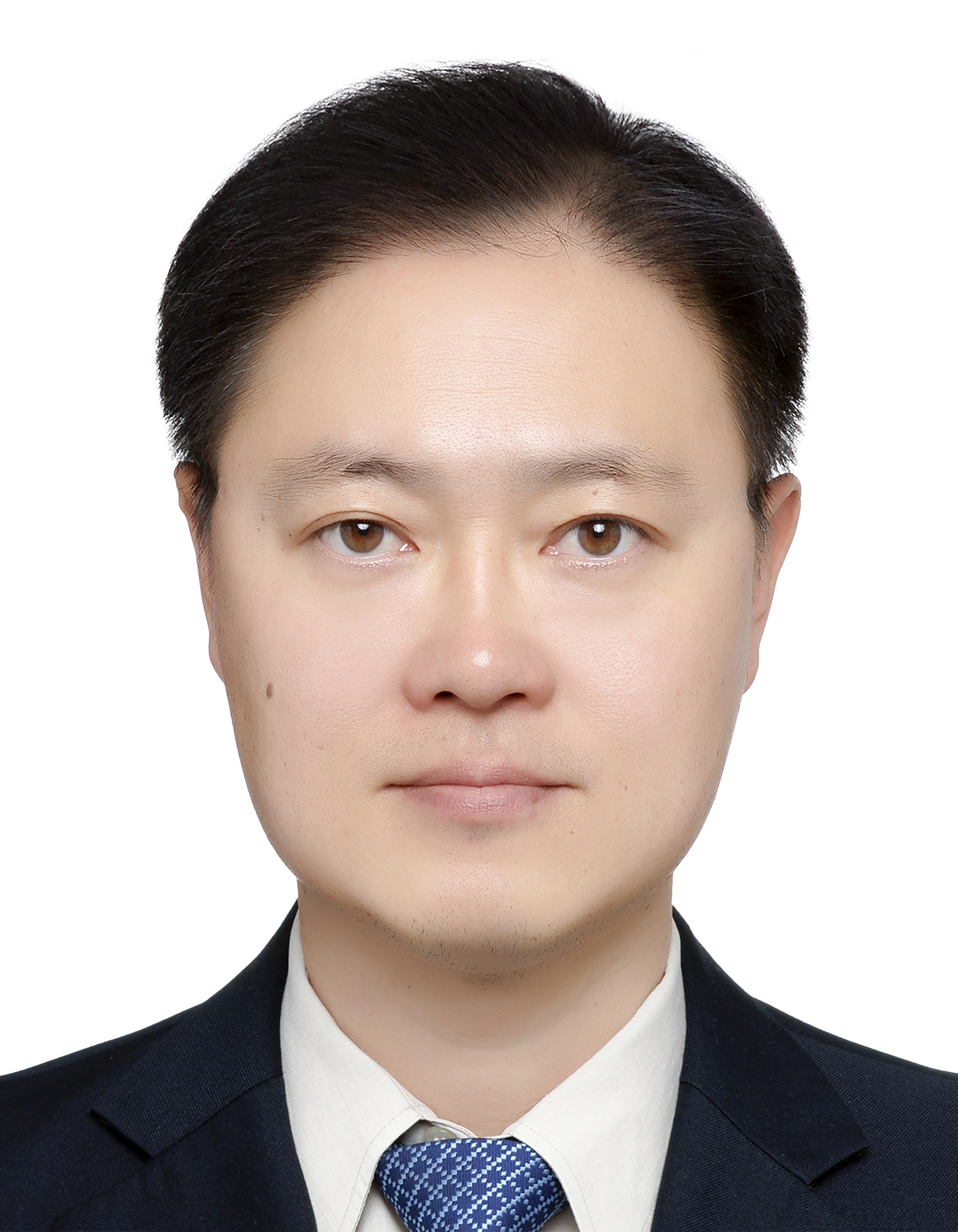 |
Public Policy & Management | Florida State University | dowhat50@dongguk.edu |
| Gwang-Bin Bae | 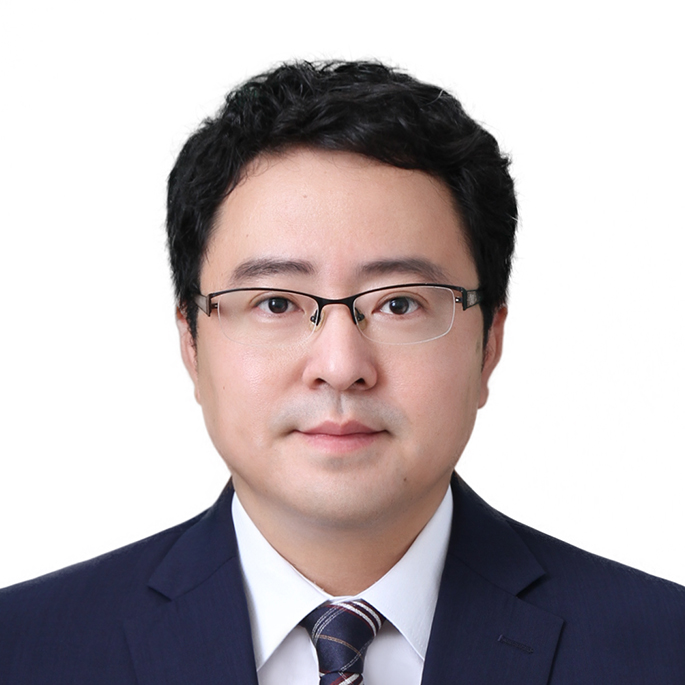 |
Organizational Management Theory | University of Texas at Dallas | kbae@dongguk.edu |
| Min-Hyu Kim | 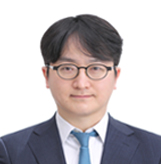 |
City policy, Smart City | Rutgers University – The State University of New Jersey | mkim2021@dongguk.edu |
Introduction of honorary professor
| Name | Picture | Major | Final degree school | |
|---|---|---|---|---|
| Ik-Sub Sim |  |
Organizational management theory | Speyer University | - |
| Hyeong-Woo Lee |  |
Political science | Wharton Pennsylvania University | - |
- Office
Department of Public Administration Studies
- Tel
+82-2-2260-8718
Department of North Korean Studies
Introduction
Established in 1994, North Korean Studies in Dongguk University is the first academic department in South Korea that focuses exclusively on North Korea. The department covers diverse aspects of North Korea's society-political, economic, social, and cultural. The department helps students develop analytic skills on North Korea and unification issues between North and South Korea. It, then, tries to develop academic specialists who have deep understanding of North Korea as well as professionals who work on the front line for cooperation and unification between the two Koreas. The Graduate School of North Korean Studies aims to enhance the professional abilities of students needing an academic refresher in North Korean government agencies, the labor party of North Korea and other organizations by providing education on the latest theories and trends of various fields, including North Korean politics, economics, society, and culture to nurture experts for unification. As a result, The Graduate school of North Korean Studies, in researching North Korea, emphasizes research areas such as politics and economics and also strengthens research in other areas such as society, culture, and arts etc.
Curricula
Introduction to North Korean Studies / Introduction to Korean Unification / Historical Socialism / Theory and System / Theory of North Korean Politics / Studies on the External Environment of Reunification / North Korea's Society and Culture / The Korean Worker's Party and North Korean Leadership / The Economy of North Korea / The Ideology of North Korea / Studies on Law and Public Administration of North Korea / The Foreign Policy of North Korea / Inter—Korean Interchanges and Social Cooperation / The Scope and Methods of North Korean Studies / Studies on North Korea's Military and Security Policy / Geography and Tourism of North Korea/Studies on North Korea's Arts and Literature / Language and Life of North Korea / Economic Integration and Cooperation bet ween the Two Koreas / Education in North Korea / The Comparative Study of North and South Korean Political Systems / Study of Reunification of Divided Nat ions Cases / The Political Economy of Northeast Asia
Professors
| Name | Picture | Major | Final degree school | |
|---|---|---|---|---|
| Yong-Hyun Kim |  |
North Korean Studies, Unification | Dongguk Univ. | unikor21@dongguk.edu |
| Jin-Tae Hwang |  |
North Korean Studies, Political Geography | University of Bonn | dchjt@dongguk.edu |
- Office
Department of North Korean Studies
- Tel
+82-2-2260-8721
Department of Economics
Introduction
The study of Economics concentrates on the decision-making processes of human beings when they allocate scarce resources through product ion, distribution, and consumption of goods and services. The Major focuses on fundamental principles of economic phenomena by applying a systematic and thorough analytic methodology. Economics is divided into the two broad sub fields of microeconomics and macroeconomics. Microeconomics analyzes behavior of firms and consumers and their effects on a specific market . Macroeconomics examines economy-wide phenomena such as the business cycle and economic growth.
Curricula
Principles of Microeconomics / Principles of Macroeconomics / Mathematics for Economists / Economic Statistics / Microeconomics / Macroeconomics / Advanced Microeconomics / Advanced Macroeconomics / Economic History / Public Finance / Econometrics / International Economics / Labor Economics / Theory of Industrial Organization / Economics of Information / Financial Economics / Reading Economics / International Finance / International Economic Integration / Money and Banking / Economic History of Korea / Law and Economics / Human Capital Theory / Theory of Economic Development / Mathematical Economics / Understanding of Financial Industries
Professors
| Name | Picture | Major | Final degree school | |
|---|---|---|---|---|
| Jong-Il Kim |  |
Macroeconomics | Stanford Univ. | jongil@dongguk.edu |
| Hyung-Taik Ahn |  |
Econometrics | University of Winsconsin-Madison | htahn@dongguk.edu |
| Kwan-Ho Kim |  |
International Trade | Columbia Univ. | khkim@dongguk.edu |
| Kyoung-Won Lee |  |
Industrial Organization | University of Winsconsin-Madison | krhee@dongguk.edu |
| Sam-Mo Kang |  |
Money and Banking | University of California-Los Angeles | sammokang@dongguk.edu |
| Se-jin Min |  |
Applied Microeconomics | University of California-Los Angeles | sejinmin@dongguk.edu |
| In-Yeop Jee |  |
Macro finance | University of New South Wales | - |
| Joo-Yong Jun |  |
microeconomics, financial economics | University of Michigan | jooyong@dongguk.edu |
| Tae-Jun Lim | 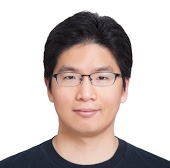 |
Macroeconomics | Economics, University of Rochester | limtaejun@dongguk.edu |
| Jung-Taek Lee |  |
Public Economics, Applied Microeconomic | State University of New York, Albany | jungtaeklee@dongguk.edu |
| Sun-Young Park |  |
Financial Economics, International Finance, Banking | Yale Univ. | sunyoungpark@dongguk.edu |
| Woo-Hyung Hong |  |
Public Economics, Applied Microeconomics | University of Washington | whhong@dgu.ac.kr |
| Jong-Suk Han |  |
Macroeconomics, Human Capital, Labor market, Fiscal Policy | University of Rochester | hanjs2731@dgu.ac.kr |
- Office
Department of Economics Studies
- Tel
+82-2-2260-8725
Department of International Trade
Introduction
The Department of International Trade aims to train specialists, through both academic research and exercises, with comprehensive theoretical understanding and good practical understanding of the world economy, global business management, and international trade. Major fields for studies encompass "trade theory and financing," "international trade and regional studies," "international trade practices and Logistics," and "global business management and comparative cultural studies," which provide the students the opportunities to develop thorough research skills and ways to handle cases in each field. The Department confers both doctoral and master degrees in four major fields: 1) trade theory and financing, 2) international trade and regional studies, 3) international trade practices and Logistics, and 4) global business management and comparative studies. Students are recommended to take courses required for each major with a prerequisite course of "Research Methodology in International Trade".
Curricula
Microeconomics / Introduction to Electronic Commerce / Macroeconomics International Trade Practices / Theories of International Economic Relations/ International Trade Theory / International Finance / Theory of Foreign Investment and Practices / Internet Trade / Junior Seminar (Techniques of International Negotiation & Business) / Korean Economy & Trade / Business English / International Transportation & Logistics / International Trade & Marketing / Environments, Economy and International Commerce / Cross-Cultural Management / Theories and Practice in International Negotiation / Trade Pol icy / Marine Insurance and Exporting Insurance / Theory of Foreign Exchange & Financial Futures / Analysis of Trade Statistics / International Trade Law and Cases/ World Regional Economy / Mentor Program (Global Etiquette and Culture)
Professors
| Name | Picture | Major | Final degree school | |
|---|---|---|---|---|
| Jae-Hwa Lee |  |
International Economies and Trade Policy | Duke Univ. | jaehwa@dongguk.edu |
| Hong-Youl Ha |  |
Professor of Marketing | Swinburne University of Technology | hyha@dongguk.edu |
| Back-Hoon Song |  |
International Economics | Pennsylvania State Univ. | bsong@dongguk.edu |
| Jung-Hwan Hyun |  |
Macrofinance | Michigan State Univ. | jhhyun@dongguk.edu |
| Byeong-Hwa Choi |  |
International Economics | lndiana Univ. | bh.choi@dongguk.edu |
| Kyoung-Gon Kim |  |
International Economics | University of Colorado Boulder | goniyo@dongguk.edu |
| Li Yinhua |  |
International Economics | Seoul National Univ. | liyinhua1619@dongguk.edu |
- Office
Department of International Trade Studies
- Tel
+82-2-2260-3505
Department of Sociology
Introduction
Sociology is a field of social sciences that explores human society. The Department of Sociology at Dongguk University aims to provide students with a wealth of opportunities to understand and analyze social life, social change, and social phenomena that require not only scientific precision but also practical application of knowledge. The department emphasizes rigorous training in theory, methodologies, and core substantive areas of sociology. Through the department's program, students are to exercise sociological imagination and insight as active learners and to develop skills in communication. The major ensures that all students (1) analyze critically social issues from various perspectives, (2) collect, classify, and analyze any given data and information, (3) generate productive and positive solutions for contemporary society, and (4) develop global insight and practice local wisdom.
Curricula
Sociological Inquiry / Introduction to Information Society / Methodology in the Social Sciences / Political Sociology / Population and Family / Critical Sociology / History of Sociology / Survey Research Methodology / Sociology of Cultural Studies / Sociological Study on Korean Society / Classical Sociological Theories / Class and Stratification/Social Statistics / Social Change / Comparative Studies in Sociology / Sociology of Labor and Industries / Social Policy / Contemporary Sociological Theories / Sociology of Work and Occupations / Visual Sociology / Practice in Survey Research / Sociology of Religion / Sociology of Aging / Special Topics in Sociology
Professors
| Name | Picture | Major | Final degree school | |
|---|---|---|---|---|
| Cheong-Seok Kim |  |
Sociology of Aging, Survey Research Methodology, Social Statistics | University of Michigan | chkim108@dongguk.edu |
| Sang-Moon Kim |  |
Time Use, Social Network, Technology and Society | University of South Carolina | kimsm@dongguk.edu |
| Kyung-Pil Kim |  |
Social Change and Development, Economic Sociology, Sociology of Information | Korea University | kpkim@dongguk.edu |
- Office
Department of Sociology
- Tel
+82-2-2260-8720
Department of Media Communication
Introduction
The major of Media Communication studies on human interactions and social changes occurred through the advancement of media and information technology. Our department offers education and professional training to students who will work in the fields of media, information, and culture industry. The courses offered by our department are designed to give students the opportunity to learn both academic and practical knowledge about journalism, broadcast ing, new media, strategic communication, and human interactions. Graduates of our department have found their professional careers in the broad range of relevant fields including national news agencies, research firms, information companies, advertising and PR companies, etc.
Curricula
Introduction to Mass Communications and Journal ism / Communication Theory Introduction to Journalism / Introduction to Broadcasting & New Media News Writing and Reporting / History of Communication / Theories of Mass Communications / New media and Information Society / Newspaper Reporting and Editing / Radio Programming & Product ion / Theories of Human Communication / Research Methods for Mass Communications / Theories of Public Relations / Introduction to Special Media / Broadcast ing Workshop / Political Communication / Multi Media Communication / Studies on Media Industry / Studies on Intercultural Communication / Persuasion & Campaign / Media Psychology / Social Statistics of Mass Communication / Organizational Communications / Speech Communications / Communication Strategies
Professors
| Name | Picture | Major | Final degree school | |
|---|---|---|---|---|
| Ha-Yong Jang |  |
Journalism & Organizational Communication | State Univ. of New York |
comjang@dongguk.edu
|
| Ho-Kyu Lee |  |
New Media & Telecommunication | Indiana Univ. |
hokyulee@dongguk.edu
|
| Kwan-Gyu Kim |  |
Broadcasting Tneory & Internet Communication | Keio Univ. | kwankyu@dongguk@edu |
| Jae-Won Kang |  |
New Media & Broadcasting Industry | Florida Univ. | jaekang@dongguk.edu |
| Yong-kuk Cnung |  |
Communication Theory and Media Effects | Indiana Univ. | ykemjy@dongguk.edu |
| Ha-Seong Hwang |  |
Broadcasting and new media | Temple Univ. | hhwang@dongguk.edu |
| Yong-Hwan Kim |  |
Emerging Media and Media Effects | University of Texas at Austin | yhkim17@dongguk.edu |
| Bumsoo Kim |  |
Social Media Analytics and Digital Media Communication | University of Alabama | kbs0035@dongguk.edu |
- Office
Department odf Media Communication Studies
- Tel
+82-2-2260-8723
Department of Food Industrial Management
Introduction
Food Industrial Management consists of four programs. First, Agriculture Programs focus on the science and business of agriculture, from plant and animal biology and production techniques to business management and marketing. We are actively engaged in applying its established strengths in the areas of bioinformatics, plant and animal breeding and genetics to the development of new, environmentally friendly solutions to meet industrial and societal needs. Second, Food Research Programs are focused on food quality and safety, the development of value-added products, and innovative technologies for the manufacture of both traditional and new food products. Third, Environmental Programs are wide-ranging, encompassing both natural and built environments in rural and urban settings. Broad research themes include biophysical research, environmental protection and improvement, resource economics, landscape architecture and regional planning. Fourth, Rural Communities Programs are focused on improving the economic, social and environmental conditions of rural communities across Korea, and around the world. Priority areas are community empowerment, communication and development, and economic well-being.
Curricula
Understanding in Food Economics / Introduction to Food Economics / Food Management / Food Microeconomics / Sustainable Development System / Food Resource Economics / Food Distribution / Food System / Understanding of Korea Economics / Understanding of Food Industry / Food Statistics / Food Management Accounting / Seminar for Food Management Strategy / Food Econometrics / Agri-Food Marketing / Agri-Food Logistics Management / Analysis of Food Industrial Management / Management Practice of Agri-Food / Theory of Cooperatives / Food Safety Management System/ Theory of Food Policy / Food Serice Management Seminar / Food Industrial Organization / Food Safety Management / Methodology of Environmental Assessment / Seminar for Agri-Business / Food Macroeconomics & Trade / Food Retail Market
Professors
| Name | Picture | Major | Final degree school | |
|---|---|---|---|---|
| Sung-Yee Yoon |  |
Biomass Energy | Tokyo Univ. | syyoon@dongguk.edu |
| Sung-Ku Kwon |  |
Food Marketing | Dongguk Univ. | skkwon@dongguk.edu |
| Jae-Hyun Hwang |  |
Food Management | Kyushu Univ. | hwang0627@dongguk.edu |
| Inbae Ji | 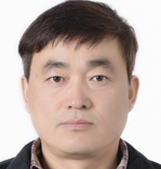 |
Agricultural Economics | Oklahoma State University | jiinbae@dongguk.edu |
| Chun-Su Sim |  |
Economics | KonKuk Univ. | 20141224@dongguk.edu |
Contact Us
- Web: http://social.dongguk.edu
- Tel: +82-2-2260-3102~5, Fax: +82-2-2260-3978
- Office
Department of Food Industrial Management Studies
- Tel
+82-2-2260-8730
Department of Advertising and Public Relations
Introduction
Advertising and public relations are communication tools that use a variety of media, including the traditional printed and broadcasting as well as the new on-line and social network channels. Based on theories of persuasion, management and negotiation, to name a few, advertising finds its foundation in ‘the communication aspects and understanding of marketing.’ And it plays an important role for effective brand management by tapping into consumer psychology. Beginning as mere publicity, the practice of public relations has now matured into a management function that strives to strike a balance between organizations and their publics by managing the relationships in-between. Because of the rapid growth of both industries, the need for professionals equipped with scientific knowledge of advertising and public relations has dramatically exploded, suggesting a rosy future ahead. Going hand in hand with such bright prospects, the scope of advertising and public relations has expanded to find diverse applications in political and social issues, beyond the commercial marketplace. The Department of Advertising and Public Relations opened in the College of Business in 1994 and later joined the College of the Social Science in 2013.
Educational Objective
The Department of Advertising and Public Relations at Dongguk University aims foremost to spearhead in developing advertising contents in digitalized formats and innovative, high-tech oriented campaigns for advertising and public relations. For this purpose, the Department works closely with related departments housed in other colleges, such as the Department of Film & Digital Media and the Department of Game & Multimedia Engineering. The Department of Advertising and Public Relations also looks to provide students with hands-on experiences with industrial practices before graduation, through internship programs with leading companies in advertising and public relations. Most of the core curriculum is designed for such areas of practice as advertising and public relations planning/management.
Curriculum
Advertising Psychology & Consumer Behavior, Global Public Relations, Advertising and Humanities, Fundamentals in Advertising, Advertising & PR Research Methods I/II, Introduction to Advertising Strategies, Public Information Campaign, Advertising Ideas and Concepts, Portfolio I/II, Media Planning Strategies, Copywriting, Introduction to Creativity, Public Relations Production, Public Relations Writing I/II, Public Relations Strategies, Introduction to Promotion, New Media and Advertising, Introduction to Public Relation, Production in Print Media Advertising, Integrated Communication Management, Advertising Seminar, Production in Broadcasting Media Advertising, Public Relations Campaign Cases Studies, Advertising and Public Relations Law & Ethics.
Curriculum for Graduate Program
Master’s and Doctoral programs are offered to develop professionals who will contribute to the development of Korean society and its market economy. International Advertising, Advertising Campaign Planning, Sales Promotion Management, Theories of Public Relations Campaign, Research Method, Advertising in New Media, Advertising Theories, Public Relations Strategies, Media Planning, Brand Communication Management, Theories of Integrated Marketing Communications, Advertising Research, Theories of Public Relations, Seminar in Political Advertising, Media Management, Research Methods, Consumer Behavior, New Media Advertising Management, Theories of Advertising Effectiveness, Crisis Communication management, Theories of Public Relations Management, Advanced Analysis of Advertising Effects, Corporate Public Relations, Public Diplomacy.
Degrees for Graduate Program
Master’s of Advertising & Public Relations, Ph.D. of Advertising & Public Relations.
Contact us @ http://www.dgu-ad.net/, +82-2-2260-8729 (College of the Social Science)
Professors
| Name | Picture | Major | Final degree school | |
|---|---|---|---|---|
| Hyong-Oh Cho |  |
Advertising | Univ. of Texas |
hocho@donggguk.edu
|
| Bong-Hyun Kim |  |
Advertising | Univ. of Alabama | bkim3@donggguk.edu |
| Yung-Kyun Choi |  |
Advertising | Michigan State Univ. |
choiyung@dgu.edu
|
| Cheol-Han Lee |  |
Advertising and promoting | Univ. of Missouri | clee@dongguk.edu |
| Hyo-Gyoo Kim |  |
Advertising | Univ. of Texas | hgkim@dongguk.edu |
| Seong-Hun Yun |  |
Advertising | Univ. of Maryland | donggukpr@dongguk.edu |
| Yu-Jin Choi |  |
Advertising | Univ. of Missouri-Columbia | ychoi@dongguk.edu |
| Hong-Min Ahn |  |
Advertising | Univ. of Texas(Austin) | hongmin.ahn@dongguk.edu |
- Office
Department of Advertising Studies
- Tel
+82-2-2260-8729
Department of Social Welfare
Introduction
The Korean society has many challenges to cope with new social risks such as low birth rates, a rapid growth of aging population, unstable employment, and so on. The subsequent welfare state is responding to the increases of social service agencies and professional social workers in Korea. Therefore, in light of the social work profession’s vision and values, our department seeks to develop a more fair, caring, and socially just society. The Department of Social Welfare aims to produce professional social workers in the knowledge and skills needed for contemporary and evolving social work practice and social welfare policy. In addition, our department engages in service to the community, the profession, and society through collaboration and leadership. Our department is actively dedicated to social welfare education, research, and service that fosters progressive changes in Korea.
Curriculum
·1-2nd year : Introduction to Social Welfare, Social Welfare Policy, Human Behavior & Social Environment, Theories of Social Work Practice, Social Welfare Administration, Skills and Techniques for Social Work Practice, Research Methods for Social Welfare.
·3-4th year : Community Social Work and Welfare, Statistics for Social Workers, Program Development and Evaluation, Social Work in Mental Health, Social work Practicum I, Medical Social Welfare, Social Work Practicum II, Social Welfare and Law, Social Security System, Child Welfare, Industrial Social Welfare, Social Work Supervision, Theories of the Nonprofit Sector.
Professors
| Name | Picture | Major | Final degree school | |
|---|---|---|---|---|
| Hak-Ju Kim | 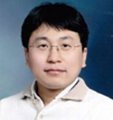 |
Social Welfare Policy & Administrative | Washington University in St. Louis | lionking@dongguk.edu |
| Hyoung-Yong Kim |  |
Social Policy & Community Welfare | Univ. of Georgia | fairwork@dongguk.edu |
| Song-Lee Hong | 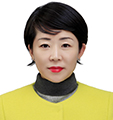 |
Elderly Welfare | Washington University in St. Louis | songiee25@dongguk.edu |
| Yoewon Yoon |  |
Child welfare & mental health | Univ. of Southern California | yyoon@dongguk.edu |
| Eun-Young Lee |  |
Child&Family Welfare | McGill Univ. | eunyoung.lee@dongguk.edu |
- Office
Department of Social Welfare Studies
- Tel
+82-2-2260-8704
- Seoul Campus
- 30, Pildong-ro 1-gil, Jung-gu, Seoul, 04620, Republic of Korea
- Tel +82-2-2260-3314 Fax +82-2-2260-2277
- incoming@dongguk.edu (Exchang Program)
- scf@dongguk.edu (International Students Services)
- adm@dongguk.edu (International admission)
-
cscenter@dongguk.edu
(Certificate Issuance, Education Verification) - kic@dongguk.edu (Korean Language Course)




